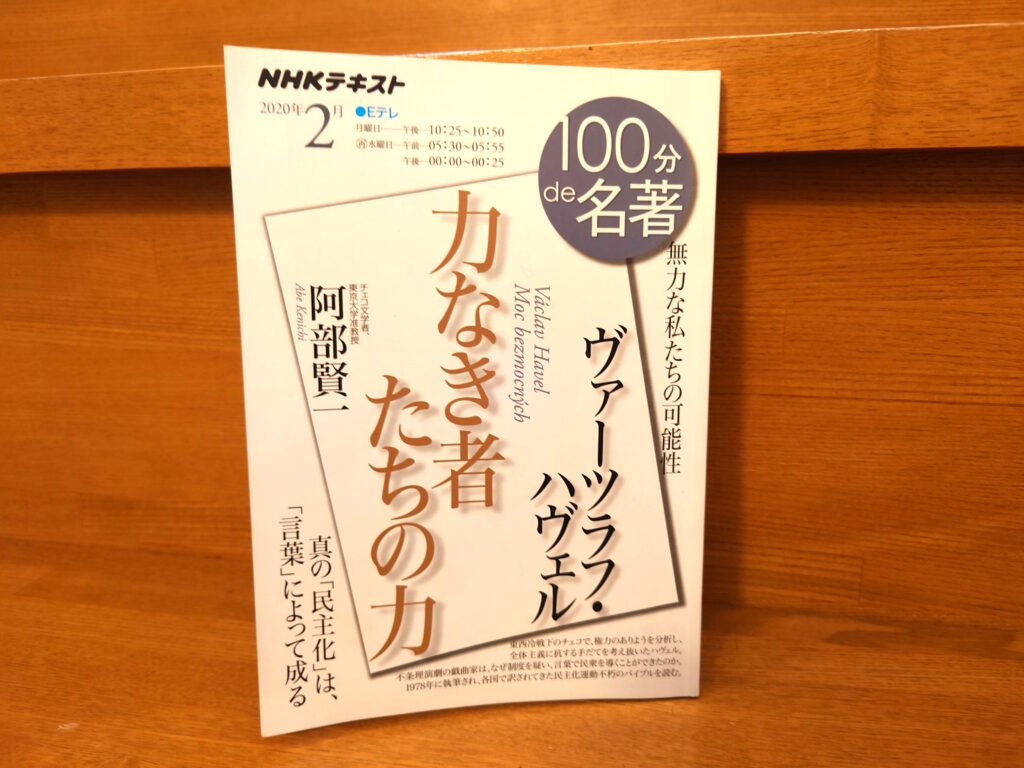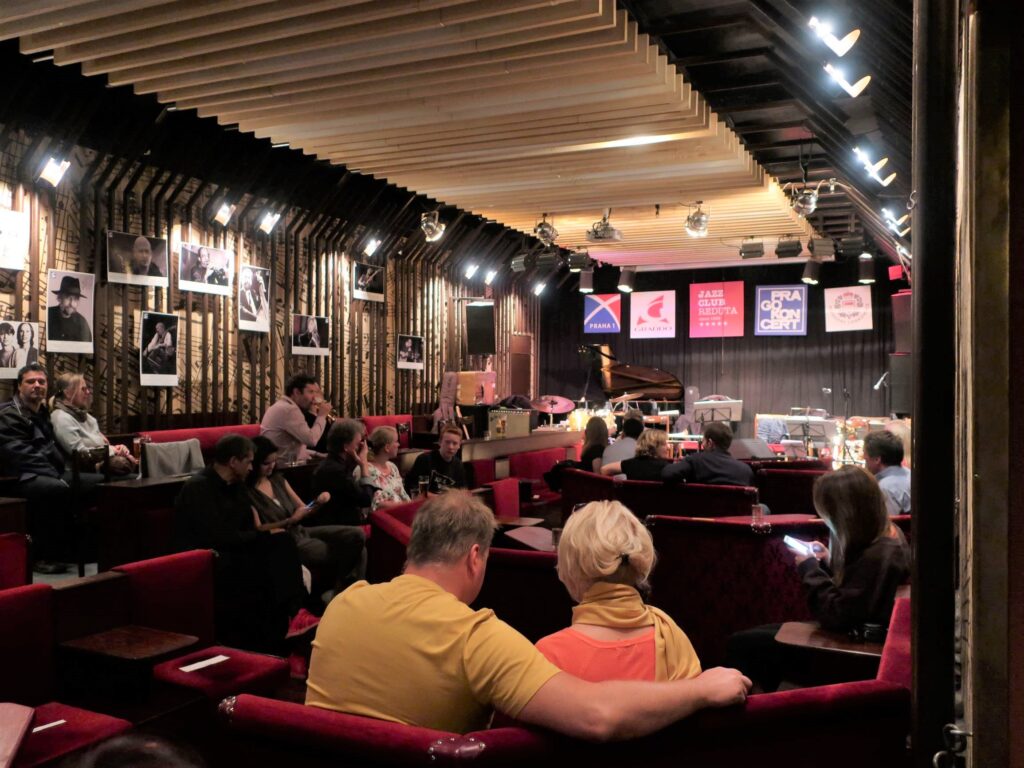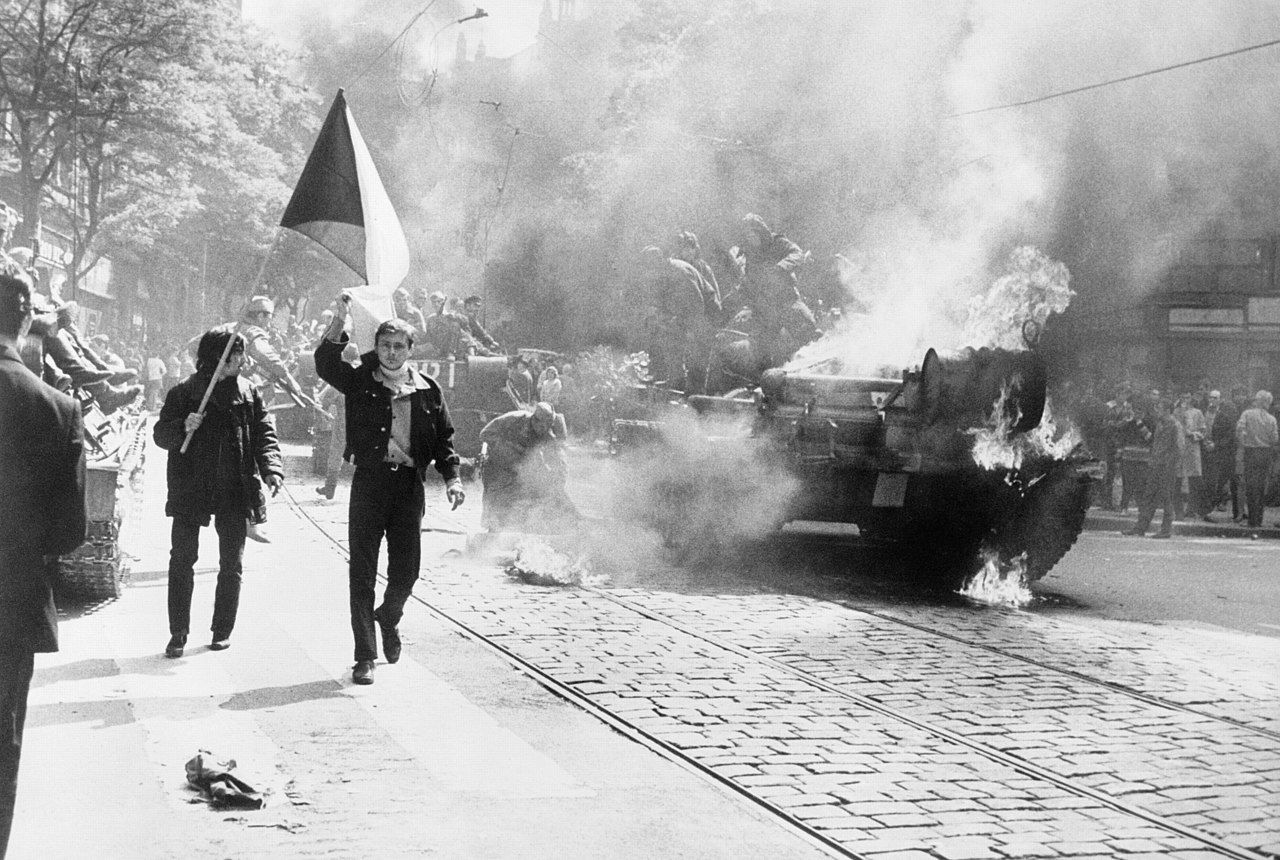Table of Contents
- 1 「プラハの春」ソ連軍侵攻事件とは何か学ぶのにおすすめの参考書10冊を紹介~ロシア・ウクライナ侵攻を考えるためにも
- 1.1 Ten Years of Solidarity: Poland, Crushed Reforms, and Czechoslovakia" - Recommended for understanding the flow of the Prague Spring.
- 1.2 Joseph Kudelka's "Prague Invasion 1968," a masterpiece of photography! How did the citizens of Prague face the tanks?
- 1.3 Victor Seveschen, "The Eastern European Revolution 1989: The Collapse of the Soviet Empire," recommended for studying the history of the collapse of the communist bloc!
- 1.4 Viktor Seveschen, The Hungarian Revolution 1956, a major event in Eastern Europe during the Cold War that shocked the world.
- 1.5 O.A. Westad, "Cold War World History," a recommended thorough history of the world during the Cold War.
- 1.6 A marvelous book! V. Havel, "The Power of the Powerless," a must-read essay by the President of the Czech Republic - We who are unknowingly complicit in totalitarianism.
- 1.7 V. Havel's "Jebráčká Opera" (The Beggar's Opera) is a masterpiece, a must-read for those who want to get a feel for the atmosphere after the Prague Spring!
- 1.8 Kazuya Harue's "Spring in Prague" Synopsis and Comments - Read this and you'll love Prague!
- 1.9 Kundera's "The Unbearable Lightness of Being" Synopsis and Comments - To understand the atmosphere of communist rule after the Prague Spring.
- 1.10 Tom Stoppard's "Rock 'n' Roll" Synopsis and Comments - A classic play influenced by Kundera and Havel.
- 1.11 Extra Edition - Visit to "Reduta Jazz Club" - Prague's recommended long-established jazz club - a legendary club that continued to promote Czech culture even during the Soviet repression era.
- 2 Conclusion
「プラハの春」ソ連軍侵攻事件とは何か学ぶのにおすすめの参考書10冊を紹介~ロシア・ウクライナ侵攻を考えるためにも
この記事ではこれまで当ブログで紹介した1968年の「プラハの春」ソ連軍侵攻事件(チェコ事件)について学ぶためにおすすめの参考書をご紹介していきます。(※記事タイトルの写真はWikipediaより引用しています)
Although the Russian invasion of Ukraine is currently at a critical juncture, the "Prague Spring" incident is also very important for understanding the history of the Soviet Union, Russia, and Eastern Europe.
では、その「プラハの春」とは一体何だったのか。チェコ文学研究者の阿部賢一氏の『100de名著 ヴァーツラフ・ハヴェル『力なき者たちの力』』では以下のようにまとめられています。
オーストリア=ハンガリー帝国の一部だったチェコスロヴァキアが国として独立を宣言したのは、第一次世界大戦後の一九一八年のことです。独立後は、哲学者でもあった大統領トマーシュ・ガリッグ・マサリクの下で、作家カレル・チャぺックから、前衛芸術を推進した芸術理論家カレル・タイゲに至るまで、さまざまな文化が花開きました。日本でも人気の高い画家アルフォンス・ミュシャ(ムハ)の《スラヴ叙事詩》は、チェコスロヴァキアの建国十周年を記念して公開されたものです。
ところが、一九三八年、当事者であるチェコスロヴァキア不在の状態で、英仏独伊の首脳が締結したミュンヘン協定により、ドイツ系住民の多かったズデーテン地方のドイツへの割譲が認められてしまいます。さらに翌年には、チェコスロヴァキアは解体し、チェコはドイツのボヘミア・モラヴィア保護領となってしまいます(スロヴァキアは傀儡政権により独立)。チェコスロヴァキアはこの時、ヨーロッパの地図から一旦姿を消してしまうのです。
第二次世界大戦が終わると、チェコスロヴァキアの一部の指導者は、ソ連への接近を図ります。その動きの背景には、大戦前のミュンヘン協定で国が崩壊した記憶が生々しくあり、英仏に対して「裏切られた」という思いが強かったためで、一九四六年に共産党が第一党となり、四八年には実質的な社会主義体制が確立されることになりました。
一九六〇年代に入り、経済が停滞すると、共産党の内部から変革を求める動きが出てきます。一九六八年、「人間の顔をした社会主義」というスローガンを掲げ、アレクサンデル・ドゥプチェク第一書記の指導のもと、文化開放政策が進められます。この動きは「プラハの春」と呼ばれました。
しかし、ソ連を中心とする東側陣営はこの動きを容認せず、同年八月二十日、ソ連軍を主力とするワルシャワ条約機構軍が国内に侵攻する、いわゆる「チェコスロヴァキア事件」が起きます。ドウプチェクら指導陣は退任を余儀なくされ、その後、新しい大統領グスターフ・フサークのもと、「正常化」体制という、より締め付けの厳しい体制が築かれました。プラハの春の民主化路線が「異常」であり、それ以前の「正常」な体制へ戻すという意味で「正常化」という表現が使われました。
その後の一九七〇年代は、チェコの文化がもっともグレーだった時代とも言われます。検閲、監視が横行し、市民たちも疑心暗鬼になっていたからです。
NHK出版、阿部賢一『100de名著 ヴァーツラフ・ハヴェル『力なき者たちの力』』P13-17
阿部賢一氏の『100de名著 ヴァーツラフ・ハヴェル『力なき者たちの力』』は複雑なソ連、東欧事情をわかりやすく解説してくれる素晴らしい作品です。

ヴァーツラフ・ハヴェルの『力なき者たちの力』も驚異の名著ですが、それをここまでわかりやすく解説した阿部賢一先生の本も驚異の一冊です。
では、「プラハの春」の概要もお話ししましたので、これより、本紹介を始めていきます。それぞれのリンク先ではより詳しくお話ししていますのでぜひそちらもご覧ください。
Ten Years of Solidarity: Poland, Crushed Reforms, and Czechoslovakia" - Recommended for understanding the flow of the Prague Spring.
This book is the third volume in a series titled "NHK Special: The 20th Century of Socialism," about the anti-Soviet movement in Poland at the end of the Cold War and the Prague Spring incident in the Czech Republic in 1968.
I picked up this book because I was looking for something that explained the Prague Spring.
The book is dedicated to the situation in Poland at the end of the Cold War and the Prague Spring, and each is discussed just about halfway through the 270 pages of the book.
There are surprisingly few books that provide more than 100 pages of commentary on the Prague Spring alone, and we were very grateful for such a comprehensive commentary.
And it is easy to understand not just the Prague Spring of 1968, but also the explanations of the preliminary stages leading up to it, and why Prague was trying to move toward a unique socialist system, and why the Soviet Union tried to crush it so thoroughly. It is very good for getting the background of events as it carefully follows the flow of history. The book also covers the road leading up to the Velvet Revolution of 1989, so it covers the period before and after the Prague Spring.
The abundance of photographs makes it easy to visualize what it was like in those days, making this book a perfect overview of the Prague Spring.
Joseph Kudelka's "Prague Invasion 1968," a masterpiece of photography! How did the citizens of Prague face the tanks?
This book is a collection of photographs by photographer Joseph Kudelka documenting the Soviet invasion of Prague.
A large number of tanks and fully armed soldiers stormed the beautiful city of Prague and took control of the city by force.
This brought the Prague Spring, which sought freedom from oppression, to a complete end.
This film is a realistic experience of the tense situation in Prague.
And the book contains 249 photos.
All of these photos are shocking.
Every time I turned the page, a chill ran through my body and I got goosebumps. This is no exaggeration. That is how shocking the photos here are.
In particular, the photos of the citizens of Prague facing the tanks leave one speechless. One can only be stunned.
This incident occurred in 1968. It was a little over 50 years ago. I wondered what was happening in Prague only 50 years ago. Tanks were marching in the middle of beautiful Prague, armed soldiers were pointing their guns at Prague citizens, and Prague citizens were trying to resist not with violence but with words and non-violence. The sight of them is just so heart-wrenching...
In this work, you will not only see photographs, but also hear commentary on what the Prague Spring was, why the Soviet invasion took place, and how the citizens of Prague stood up against the tanks. This commentary is also very easy to understand and shows how the citizens of Prague bravely stood up against absurd violence with their "words" and "humanity.
This book gives us some amazing facts. I have the utmost respect for the courage, culture, and humanity of the people of Prague who continued to resist non-violently. I was so moved by it that I almost cried while reading it.
The photographs shown here have amazing power. We hope you will feel their impact.
It is not easy to find this book, but you may be able to find it as a used book or in a large library. If you do find it, I highly recommend you pick it up. This is one book I would definitely recommend.
Victor Seveschen, "The Eastern European Revolution 1989: The Collapse of the Soviet Empire," recommended for studying the history of the collapse of the communist bloc!
The author of this work, Victor Sebeschen, is an author we have mentioned many times on our blog.
His works are easy to read, and they are all well-known books that lead us to interesting yet profound insights. Seveschen's documentary work on the process of the collapse of the Soviet Union is entitled "The Eastern European Revolution 1989: The Collapse of the Soviet Empire.
彼の『レーニン 権力と愛』という作品においては「『レーニン 権力と愛』を読む」という題で15回以上にわたって本の内容をじっくりと読んでいきました。それほどこの作品は面白く、私にとって興味深い内容が満載だったのですが、今回の『東欧革命1989 ソ連帝国の崩壊』もそれに劣らぬ面白さでした。
I had hoped to update this article in a more detailed manner in the form of a "Reading "The Eastern European Revolution 1989: The Collapse of the Soviet Empire," but the volume of the book is so large and its contents so diverse that I have to give up the idea of doing so this time. However, I would like to tell you that this work is so fascinating that I would like to do so.
In this book, the Prague situation will be described in detail. The story told in Seveschen verse is so engrossing that you will lose track of time. It is a very interesting book. I highly recommend this book as well.
Viktor Seveschen, The Hungarian Revolution 1956, a major event in Eastern Europe during the Cold War that shocked the world.
上でも少し紹介しましたが、この本は1956年に起きたハンガリー革命について書かれた本です。
この事件がプラハの春と異なるのは、ハンガリー側がソ連側に徹底抗戦し激しい戦闘になったということでした。
その結果、激しい抵抗にあったソ連軍はブダペストの街を廃墟にするほどの大砲撃を行い、市民がゲリラ戦をする余地すら奪いました。完全なる破壊です。こうなっては市民の武装程度でどうなる問題ではありませんでした。あっという間にハンガリーは制圧され、今度こそ完全にソ連の支配下に置かれることになってしまいました。
この事件はソ連配下にあった中欧、東欧世界にとってとてつもない衝撃を与えました。
ソ連に歯向かえばこういうことになるという見せしめになってしまったのです。
また、こういうことが起きた時に西側陣営は助けてくれず、平気で見捨てるということも彼らは知ることになりました。
これ以後、東側陣営ではしばらくの間革命運動は下火になります。
チェコのプラハではこのおよそ10年後「プラハの春」運動が起きますがこれもソ連軍の侵攻により強制的に弾圧されることになってしまいます。
ソ連支配下における中欧、東欧の抑圧はこのハンガリー革命によってその方向性が決定付けられることになったのでした。その意味においてこのハンガリー革命というのは非常に重要な出来事と言えるでしょう。
この本はそうした歴史的大事件の経緯を余すことなく私たちに見せてくれます。まさしく臨場感あるドキュメンタリー番組を見ているかのようです。
ヴィクター・セベスチェンの絶品の語り口をぜひ皆さんにも感じて頂きたいです。非常に面白い本です。現代を生きる私たちにたくさんの教訓を与えてくれます。とてもおすすめな1冊となっております。
O.A. Westad, "Cold War World History," a recommended thorough history of the world during the Cold War.
私は1990年生まれということで冷戦時代を経験していません。なかなか冷戦時の世界を学ぶ機会もなく、ほとんど冷戦のことを知らなかったというのが正直なところでした。
ですがこの本はそんな私でもすらすら読め、そして驚くような事実をたくさん教えてくれます。世界の歴史の流れをとてもわかりやすく、刺激的に教えてくれます。米ソ冷戦を軸にヨーロッパやアジア、中南米、アフリカまで世界中の歴史を学ぶことができるスケールの大きい歴史書となっています。
歴史書というと固い読み物のようなイメージがあるかもしれませんが、まるで物語を読んでいるかのように入り込むことができます。これはとてもおすすめな1冊となっています。ぜひ手に取って頂きたい本です。
A marvelous book! V. Havel, "The Power of the Powerless," a must-read essay by the President of the Czech Republic - We who are unknowingly complicit in totalitarianism.
First let me say. This book is a shocking one. It was one of the most impactful books I read last year. I was originally interested in the Prague Spring, but this book made me rethink what was happening in Prague at that time and how they fought their way to the collapse of the Soviet bloc and won their freedom.
This book gives a very important perspective on Japan, a world that has become very confusing and difficult to live in due to the Corona disaster. Now is the time for this book to be appreciated!
Václav Havel was originally a playwright who later became president of the Czech Republic.
Havel also experienced the Prague Spring and consistently demonstrated resistance to Soviet intervention and totalitarianism that suppressed freedom. The fundamental idea of his activities will be written about in "The Power of the Powerless".
In this article, we will take a closer look at some of what Havel was trying to say.
I will say it again and again, this is a book that needs to be read now! It is a masterpiece of a masterpiece! I urge you to pick up a copy.
V. Havel's "Jebráčká Opera" (The Beggar's Opera) is a masterpiece, a must-read for those who want to get a feel for the atmosphere after the Prague Spring!
Václav Havel is not well known in Japan, and his works are even less so. We have introduced Prague Spring and Havel on this blog, but we still think it is a shame. Havel deserves much more attention!
Havel's ideas and the plays he created have enormous meaning for those of us living in modern Japan.
And this book is the perfect work to feel that.
The work itself, "Jebráčka Opera (The Beggar's Opera)," is of course interesting, but what is outstanding is the commentary in this book. The commentary makes it very easy to understand what was happening in Prague at this time, who Havel was, and what he was thinking and trying to tell us.
This book is just wonderful. I would say it is an essential reference for the Prague Spring.
Kazuya Harue's "Spring in Prague" Synopsis and Comments - Read this and you'll love Prague!
This work is very emotional for me.
I embarked on an 80-day trip to 13 countries starting in March 2019. And one of the destinations was Prague, Czech Republic. And of all the wonderful cities I met on this trip, Prague was the one I fell in love with the most.
I had picked up this work a few months before I left for this trip, thinking, "If I am going to Prague, I must read this. I was fascinated by the beauty of Prague as described in this book. The history and culture of Prague and its spirituality are really skillfully portrayed in this work. I feel that I was able to feel the charm of Prague more because I read this book. This work conveys the charm of Prague in all its glory.
Through this novel, we readers will learn about the situation in the Czech Republic in 1967-8. I myself knew very little about the Soviet Union when I read this novel. I had only heard the name of the Prague Spring. However, the author carefully explains the history of the Soviet Union in the story, so it was very easy to understand the history of the Soviet Union. You can enjoy this work without any previous knowledge. In fact, I think it is more interesting for those who don't have such knowledge to learn about the Czech situation at that time.
And what is most memorable about this work is this line.
But still beautiful. Why is Prague so beautiful?
Shueisha, Kazuya Harue, Spring in Prague, vol. 2, p. 43
Prague is all about this one word!
I can't tell you how many times these words came to mind when I actually visited Prague!
What other words could so beautifully describe Prague's charms?
Sighing beauty. And with that sigh, Prague reminds me of this word.
Oh, I want to go back, Prague. It really was a wonderful city. This book is a book that lets you feel the charm of Prague. It is not just about the beautiful scenery and buildings, but the beauty of Prague, including its history, culture, and spirituality. I think this novel is a must-read for anyone who is planning to visit Prague. I highly recommend it.
Kazuya Harue's "Spring in Prague" Synopsis and Comments - Read this and you'll love Prague!
Kundera's "The Unbearable Lightness of Being" Synopsis and Comments - To understand the atmosphere of communist rule after the Prague Spring.
The Prague Spring and subsequent Soviet rule have been discussed on this blog in the past, and Kundera was indeed a writer who lived through those times.
And this work is one of the best works to get an idea of the atmosphere of Prague after the Prague Spring.
Let's take a look at the synopsis of this work.
This book is a shocking masterpiece by Milan Kundera, the greatest contemporary European writer from the Czech Republic, which was published during his exile in Paris and immediately caused a worldwide sensation of excitement. Set against the backdrop of the "Prague Spring" and its decline, the tragedy of love follows Tomáš, a brilliant surgeon and Don Juan, his country daughter Tereza, and Sabina, an uninhibited painter.
Is the unmitigated lightness of a one-time life really unbearable? Sweet and sad. The ultimate love story.
Shueisha, Eiichi Chino translation of "The Unbearable Lightness of Being," back cover
I decided to read this work in order to understand the atmosphere of Prague after the "Prague Spring". In this respect, this work gives me a strong sense of that atmosphere.
The main character, Tomasz himself, was forced out of his job and suffered hardships after the Prague Spring. The film gives us a realistic picture of the hardships that Prague's intellectuals had to endure.
In addition, the author's analysis of such Soviet domination, especially from the middle of the work onward, is told through the novel. This is quite powerful and breathtaking. Particularly memorable was the scene described in the chapter "Part VI: The Great March. Here the vulgarity of the West's performance in the campaign to overthrow communism is exposed.
During the Nazi occupation of Prague during World War II and the Prague Spring of 1968, no one helped us in the end and the world abandoned us. Even today, the West still promotes its campaign to overthrow communism, but in the end it is only a performance for itself. I could feel such a scathing condemnation from this chapter. It is quite shocking here. I felt that Kundera was able to write this because he experienced the Prague Spring and knows a lot about the Western world through his exile.
The Unbearable Lightness of Being" was a piece that gave a sense of the atmosphere of Prague after the "Prague Spring."
Tom Stoppard's "Rock 'n' Roll" Synopsis and Comments - A classic play influenced by Kundera and Havel.
The play is by Czech-born playwright Tom Stoppard and was performed in Japan in 2010 with Masachika Ichimura in the lead role.
Tom Stoppard was born in Czechoslovakia but left his homeland after the Nazi invasion, from where he eventually became British.
So his homeland of Czechoslovakia was very important to him. He depicted Prague under the oppression of the Soviet Union in this film, "Rock 'n' Roll.
In fact, he was strongly influenced by the works of Czech presidents Václav Havel and Milan Kundera, whom we have already mentioned, and this work would not be possible without them.
I highly recommend this work to anyone who wants to learn more about the Prague Spring and more about Havel and Kundera.
Extra Edition - Visit to "Reduta Jazz Club" - Prague's recommended long-established jazz club - a legendary club that continued to promote Czech culture even during the Soviet repression era.
Our blog is about the playwright Václav Havel, who became the president of the Czech Republic.Havel's Autobiography.introduced.
And in the book, there was a reference to a certain "jazz club". When I read that passage, I was quite surprised.
Because when I visited Prague in 2019, I happened to stop by that jazz clubReduta Jazz ClubIt was. (Hereafter referred to as "reduta.")

I visited Reduta because I saw on the Internet that it was a well-established and highly recommended jazz club. I was really surprised to learn that Reduta had played a tremendous role in the history of the Czech Republic.
Therefore, this article will introduce its famous and long-established jazz club, Reduta. We hope you will find it useful when you visit Prague.
Conclusion
以上、「プラハの春」を学ぶためのおすすめ参考書をご紹介しました。
今回のロシアのウクライナ侵攻と「プラハの春」が似たようなものなのかは正直わかりません。どちらかというと、ハンガリー革命の方がソ連軍に徹底的に攻撃されたという点で似ているのかもしれませんが、いずれにせよ、歴史を学ぶことは今世界で何が起こっているのかを考える上で非常に重要であると私は考えます。
ロシア(ソ連)と東欧諸国の関係は非常に複雑です。そしてそこに西欧諸国の思惑も絡んできますので、もはや頭が痛くなるほど複雑怪奇な政治状況になってきます。
ただ、チェコは私の大好きな国です。私はこの国の歴史・文化に敬意を持たずにはいられません。
I think it is very meaningful for us Japanese to learn about the Czech Republic, a country that has spun out a proud culture and history despite being surrounded by major powers.
ぜひ、この記事で紹介した本を手に取って頂けたらなと思います。
以上、「「プラハの春」とは何かを学ぶのにおすすめの参考書10冊を紹介~ロシア・ウクライナ侵攻を考えるためにも」でした。
Click here to read the previous article.
Related Articles







































